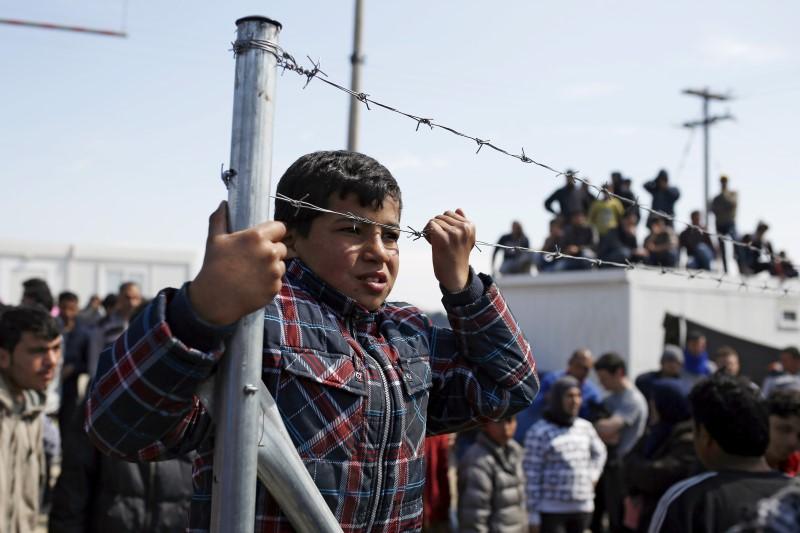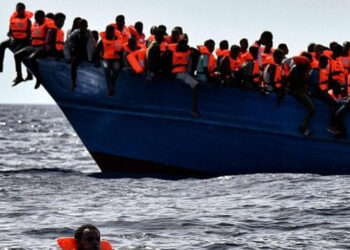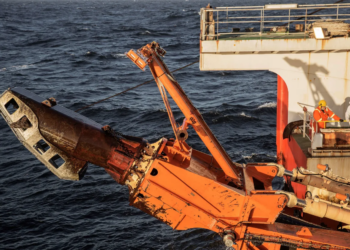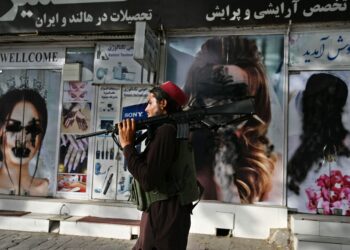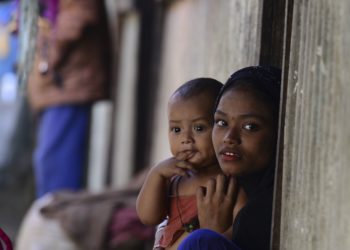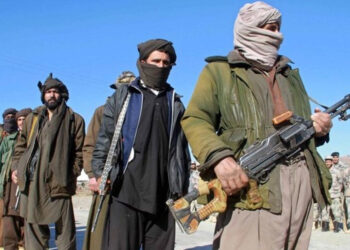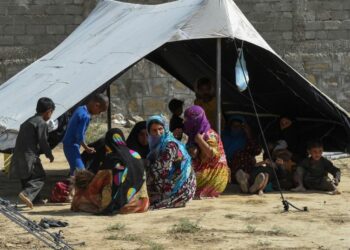Afghan asylum seekers have been commonplace in European countries over the last decade, and unaccompanied minors constitute a growing number of them. Most of these children, who are separated from their primary caretakers, are granted a temporary residence permit, which expires when they turn 18 years old. At that point, they are deported to Afghanistan. However, recent reports from Afghanistan show that the Norwegian and Danish governments are trying to pressure Afghan authorities into a new policy. Under this new framework, the Nordic countries are allowed to conduct administrative mass deportations of unaccompanied minors back to centers in Kabul.
The two governments frame such facilities as “education and care centers,” while the Norwegian Red Cross stresses that they are in fact return centers for child deportees and constitute experimentation with the lives of children. The security situation in Afghanistan has by all counts deteriorated drastically during the last decade. Between 2008 and 2015, the number of internally displaced persons in Afghanistan rose from around 250,000 to over 1.2 million. This number is only likely to increase since Iran and Pakistan have begun deporting hundreds of thousands of Afghan refugees back to Afghanistan.
This leaves children extremely vulnerable. The number of children that are maimed or lose their lives because they are picking up bomb fragments or detonate Improvised Explosive Devices (IEDs) has been rising for years. Another risk is the forced recruitment by militias or the Taliban, and yet another, more taboo, concerns the sexual abuse of “dancing boys,” still common in some rural regions. These risks together mean that many Afghans often re-migrate if they are deported, or if their first attempt fails.
Not the First Time
The policy pursued by Norway and Denmark may be extremely controversial, but actually has a history over the last decade. From at least the mid-2000s, civil servant networks from several Northern European countries have collaborated on the concept of deportation of unaccompanied minors. In 2011, Sweden, Norway, Denmark, Great Britain, the Netherlands, and Belgium launched the European Return Platform for Unaccompanied Minors (ERPUM), supported by funds of the European Commission.
ERPUM was a pilot project and ran between 2011 and 2014. It aimed at deporting unaccompanied Afghan minors from European countries. The pilot made use of a disjunctive phrasing, stating that children were to be returned to their families or adequate reception facilities.
This phrasing is crucial because it opened up for the deportation of unaccompanied children to Afghanistan, even if the tracing of their families was unsuccessful. Presumably, in such cases, the children were to be sent to unspecified deportation orphanages. However, despite multiple family tracing workshops and coordination meetings, no family members were traced to the extent that return procedures could be initiated, and not a single child was deported during ERPUM.
Many scholars and researchers have been critical of ERPUM’s much-publicized focus on family tracing. They have suspected that since no tracing experiences existed, the real core in the project was the construction of the deportation orphanages. To this, the UN refugee agency (UNHCR), UNICEF and Human Rights Watch also pointed out a number of serious questions, including how long children were supposed to remain in such facilities and what kind of security provisions they would have.
During ERPUM criticism flared, but the participating governments refused to disclose most of the pilot’s concrete plans, reverting instead to general claims that deportations could ensure family reunification. Additionally, interpretations of ERPUM’s means and ends differed, as governments issued contradicting statements about the desirability of forced child returns and about whether children could be deported to orphanages even before family tracing had been completed.
Worse still, between 2011 and 2013, the Danish, Norwegian and British governments were caught red-handed making false claims about collaboration with the International Organization for Migration (IOM), the UNHCR and Afghan authorities. Their claims were denied by, respectively, the IOM, the UNHCR and the Afghan Ministry of Refugees and Repatriation (MoRR).
It did not aid the ERPUM participants that from 2013 a string of massive mortar and suicide bomb-attacks started occurring, targeting the E.U.’s police mission, the IOM headquarters, and other international institutions, many of which had been highlighted by ERPUM as potential guarantors of the safety of the deported children. In October 2016, a Kabul-based hotel used by the Norwegian government to house deportees was hit by a bomb attack.
In late 2016, the E.U.-Afghanistan Joint Way Forward-deal resurrected the ambition of administratively mass deportations of unaccompanied minors. Even though the deal was not legally binding, it aimed at deporting at least 80,000 rejected Afghan asylum seekers. It surprisingly resurrected ERPUM’s link between asylum rejection and family tracing and even the disjunctive formulation, paving the way for children whose families cannot be traced to be deported to orphanages. Even though ERPUM failed, and no systematic and independent evaluation has been conducted determining the reasons for this failure, its rationale has been elevated to the Joint Way Forward-deal.
Aimed at Domestic Voters
There are therefore many reasons to be skeptic and cautious when it comes to government claims of the imminent realization of deportation orphanages for unaccompanied minors in Afghanistan. But why do these claims then keep on resurfacing? A key feature to understand is that ERPUM, the Joint Way Forward-deal, and the recent Norwegian-Danish push are actually designed to address the domestic voter bases rather than the current situation of unaccompanied Afghan minors across Europe. Both the Norwegian and the Danish government pursue right-wing immigration politics and are either constituted by or rely heavily on the votes and doctrines of nationalistic parties. The pandering to such domestic voter bases, unfortunately, appears to have made the governments more prone to misleading statements.
After the Norwegian party Fremskrittspartiet, part of the center-right government coalition, assured seats in their national parliament, it launched policies deporting more rejected asylum seekers to Afghanistan than any other country, proportionally speaking.
The party has received widespread criticism for the mass deportation of families with children to the war-torn country. In 2015, alongside Denmark and five other European countries, the Norwegians received official diplomatic notes from the Afghan authorities, who implored forced returns to be stopped until a new re-admission agreement had been negotiated.
However, the recent flurry of Norwegian-orchestrated meeting activities in Afghanistan indicates that the Norwegian and Danish governments seem intent on ignoring the long-established Afghan reluctance and warnings about their envisioned child deportation corridor.
Troubling Prospects
The elephant in the room of Nordic deportation politics is the drastically deteriorating security situation in Afghanistan. Danish and Norwegian governments gloss over the many reports about the deeply troubling prospects facing child deportees, referring instead to a possibility of “internal flight.” In doing so, they sidestep urgent and crucial questions about the consequences of deporting unaccompanied children to situations of internal displacement, escalating violence and retaliation, forced recruitment or re-migration.
A deportation corridor with such outcomes would indeed seem to experiment with the lives of children, as the consequences appear in stark contradiction with the Nordic countries self-professed obligations to ensure and protect the best interest of those children who come in contact with their asylum systems.
Disclaimer: The views and opinions expressed here are those of the author and do not necessarily reflect the editorial position of The Globe Post.

